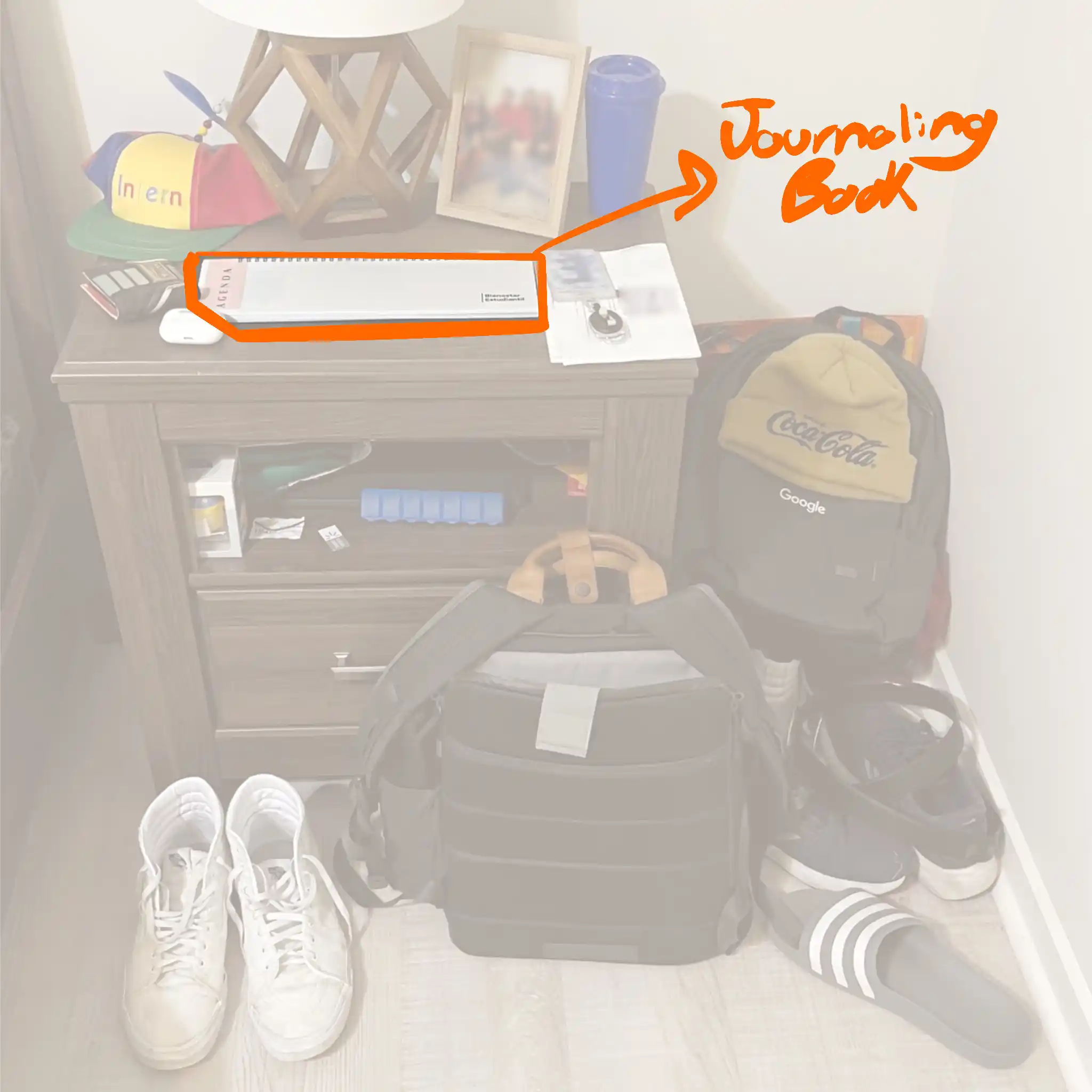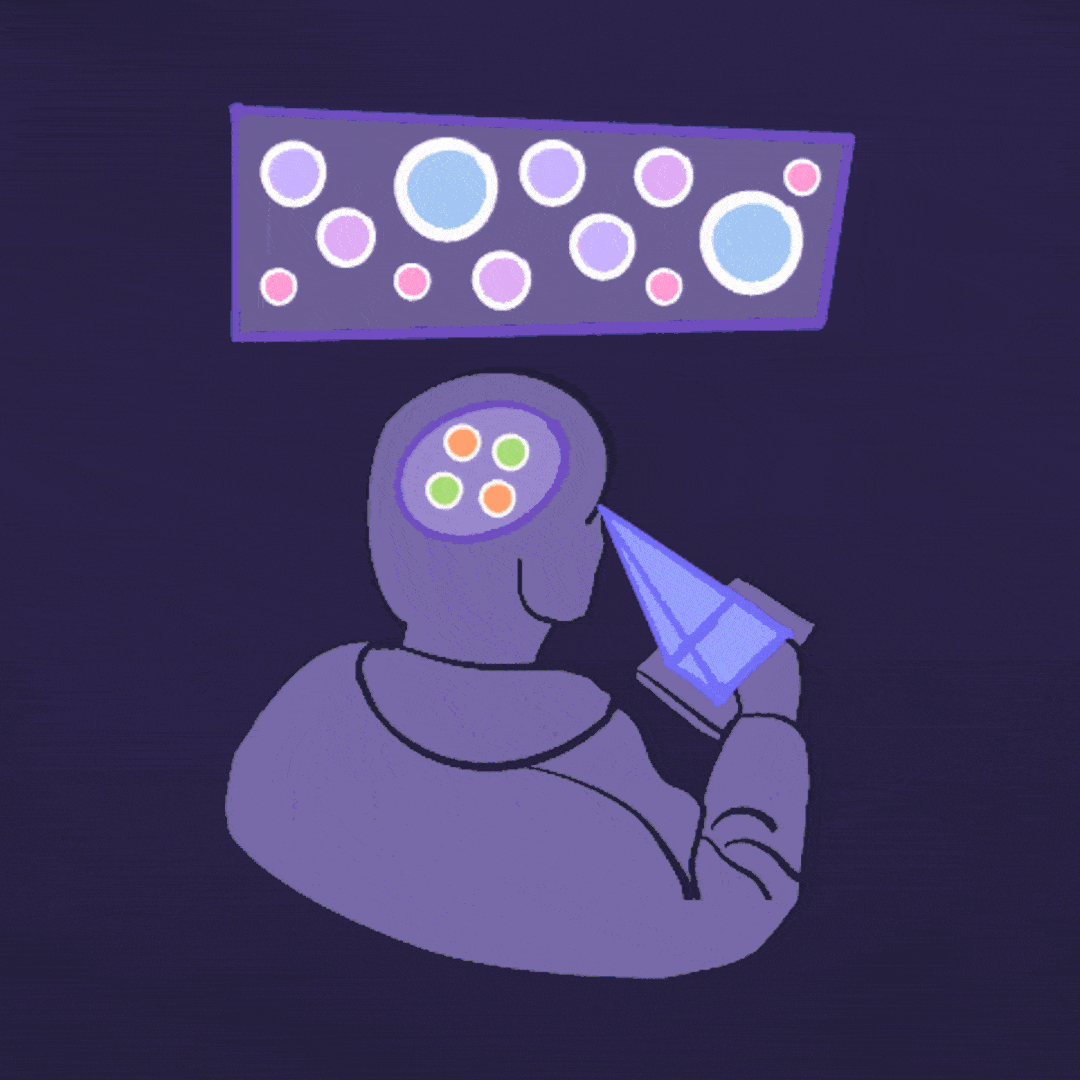The Power of Journaling
Dec 14, 2023 - 5 min read
I used to be very skeptical about anything related to relaxation and well-being practices. I thought most of them were just BS, and I still believe this about several practices. However, I decided to give one a try: journaling.
During the summer of 2023, I had the experience of interning at Google. I'll talk more about my experience in detail in a future blog post, but for this blog, I want to focus on the personal side. I believe that no matter what situation you find yourself in, there will always be things that worry you or demand a lot from you mentally.
The internship was no exception. Before I left, the school psychologist gave me a notebook and said, "I'm giving you this notebook to write about your experiences during your journey." She showed me many pages in the book and how it could help me maintain habits and continue with projects I needed to finish. Thank you so much <3. Knowing myself, I didn't use most of those pages. However, what I did start doing was writing every night before going to bed about how my day went.

I wrote about everything that happened to me: happy things, sad things, worries, tasks I had to do, and more. Writing about everything that happened to me during the day started giving me a peace of mind that I had never experienced before. For most of my life, like many others, small events or situations that may mean nothing to others would torment me for days. These could be failing at something, making a mistake at work, or even a harmless comment that had an impact on me.
Writing down my thoughts allowed me to analyze them and see what I could do and, most importantly, "see what I was thinking." I think this word is key. Many times, we have so many things on our minds that we don't know how to handle them. Some things are forgotten but end up coming back days later or after some time. I remember once hearing this quote from Lacan:
"The word kills the thing." -Jacques Marie Émile Lacan
Currently, I am reading the book "Building a Second Brain" by Tiago Forte. In this book, he explains the importance of having a place to store information outside of our brains, and this place should be easy to organize and maintain. In one page of the book, I read:
The brain is a great place to create ideas, not to store them.
This phrase stuck with me because it's true. How many of us have had a moment of Eureka where we had a brilliant idea that we thought would lead us to something great, but in the end, we forgot it within seconds, minutes, or hours? What I want to say is that while reading the book, I made a connection between all this knowledge and a book I read a while ago called "Don't Feed the Monkey Mind". The thing I remember the most from that book was the analogy they gave to explain the subconscious and the conscious.
WARNING: I'm not saying that the idea I'm about to mention is something real and scientifically proven. I'm just saying that it's a good analogy to elaborate on the point I want to make.
The analogy in the book was that the conscious mind was like a theater filled with people watching a show, and the subconscious was what was outside the theater, something you couldn't see. When something from the subconscious entered the conscious, it was described as if, in the middle of the play, a person naked with only underwear entered the theater, interrupting the show. It was mentioned that many times we repress these ideas and memories and take them out of the theater, but sooner or later, those ideas would come back. They would enter through the ventilation, the backstage, or wherever, but their return was certain.
Combining this with my knowledge of programming, I thought that the subconscious is a part of our brain that we don't have access to but that holds information, and sometimes, it becomes conscious but very rarely. However, in our conscious mind, we can only hold a certain number of ideas, just like the RAM memory of computers.

The act of taking what was in the subconscious and materializing it in words, so to speak, creates a bridge to the place where we had that memory or recollection stored. So, by having it on paper, you can read it as many times as you want and take action on it. By resolving it, I believe that this worry remains within the subconscious but rarely manifests itself in the conscious because we took action to address it, freeing our conscious mind for things we truly want to focus on.
Currently, I don't do my journaling digitally. I believe that paper and pencil are irreplaceable tools for this activity because they are the fastest way to express oneself. With a digital medium, you depend on battery life, but with paper and pencil, you depend on the size of the page. I use Field Notes notebooks as they are small enough to carry everywhere, and I love their simplicity and design. But this is a personal preference; you can use any notebook you like.
Since I started journaling, I have honestly felt reduced stress levels. I feel that I have more focus on the things that require my attention and those that don't. I can also see what I'm thinking, how I'm feeling, and what I can do to improve everything. I believe it is a good form of daily internal dialogue that helps me understand where I stand, what is happening to me, and where I want to go.
I hope you enjoyed this blog post. Thank you so much for reading :)